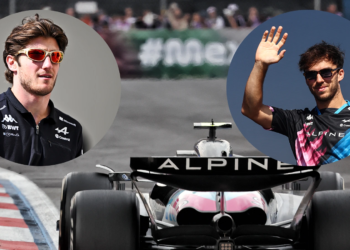Mercedes says its support of this year’s German Grand Prix was a one-off, amid the uncertainty surrounding the future of the event.
The German Grand Prix had been expected to drop off the calendar in the wake of Hockenheim’s biennial contract, originally signed in 2008, coming to a close after 2018.
That deal was signed in order to host sharing duties with the Nurburgring, which backed out of the contract after 2013, meaning there was no event in either 2015 or 2017.
Mercedes’ input ensured the event remained on the schedule at Hockenheim in 2019, with the manufacturer stepping in as title sponsor, as it celebrated 125 years of competition in motorsport.
But it is not willing to remain heavily involved for another year, throwing further doubt on the future of the event, which is widely expected to be dropped for 2020.
“I think fundamentally we are running a race team and we try to do it the best possible way,” said Mercedes boss Toto Wolff prior to F1’s summer break.
“Last year’s deal [for 2019] came up pretty spontaneously. We had a meeting on Sunday morning with Chase [Carey] and Sean [Bratches] and they said would you be able to help us bridge the gap and within half an hour we bartered out the deal in order to make the German Grand Prix happen.
“But this is not something in which we are in a position to continue.
“Also because I don’t believe we should be steering into the business of Liberty and F1. It is up to them to decide which tracks are on and off.”
Next year’s Formula 1 calendar is nonetheless likely to feature 22 events, with Vietnam joining, the Netherlands returning after a 35-year absence, while Spain and Italy are set to receive new deals.
Only the season-opening round in Australia – on March 15 – has a confirmed date, though Vietnam is understood to receive an April date, enabling Azerbaijan to shift to its desired position in June.
The Netherlands is poised to run back-to-back with Spain, while Britain is set to shift one week later (to July 19) to avoid a clash with Wimbledon and the Euro 2020 final.
It also means France (June 28) and Austria (July 5) will move one week later than in 2018, accommodating both Britain’s shift and the anticipated Canada/Azerbaijan double-header earlier in June.






